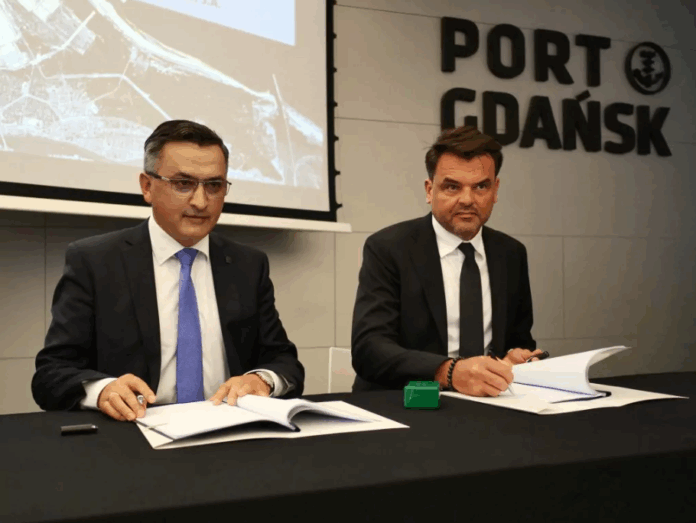Port Gdański Eksploatacja, a subsidiary of the Port of Gdańsk Authority, has recently signed an agreement with Premium Quality Care to embark on the construction of a modern grain handling facility at the Gdańsk Agro Terminal. This development marks a significant step towards enhancing the handling capacity of the Port of Gdańsk, with a projected annual capacity of 3 million tonnes. The investment, valued at PLN 240 million gross, will primarily focus on technology and construction, with substantial financing already secured for the project.
🚀 Supercharge Your Insights with ESS Pro
Access over 50,000 expert market reports and connect with more than 500,000 verified industry contacts across the global food & beverage value chain.
Includes exclusive insights, top 10 rankings, live market indicators, and up to 10 custom research reports annually.
🔓 Join ESS Pro – Unlock Full AccessEnhancing Infrastructure for Sustainable Trade
The construction of the Gdańsk Agro Terminal represents a crucial investment in the infrastructure necessary to support the growing demands of the food and beverage trade. With the global food supply chain becoming increasingly complex and interconnected, having state-of-the-art facilities like the Agro Terminal is essential for ensuring efficient handling and transportation of agricultural commodities. This development not only strengthens the logistical capabilities of the Port of Gdańsk but also contributes to the overall sustainability of the food industry by streamlining operations and reducing environmental impact.
Strategic Outlook for the Food and Beverage Industry
As the grain market experiences unprecedented volatility due to geopolitical factors and climate-related challenges, investments in modern handling facilities become imperative for maintaining a stable supply chain. The Gdańsk Agro Terminal, equipped with advanced automated systems for grain handling, will not only increase storage capacity but also enhance operational efficiency. By leveraging cutting-edge technology and sustainable practices, the terminal sets a precedent for how strategic infrastructure investments can drive growth and resilience in the food and beverage sector.
Implications for Global Pricing and Logistics
The completion of the Gdańsk Agro Terminal is expected to have a significant impact on global pricing and logistics within the food and beverage industry. With increased handling capacity and improved efficiency, the terminal will likely lead to a more streamlined supply chain, reducing bottlenecks and lowering operational costs. This, in turn, could result in more competitive pricing for grain and other agricultural commodities on the global market. Additionally, the strategic location of the terminal at the Port of Gdańsk offers logistical advantages, potentially opening up new trade routes and markets for food producers and exporters.
Sustainable Practices and Environmental Compliance
One of the key features of the Gdańsk Agro Terminal is its commitment to sustainable practices and environmental compliance. The terminal will be equipped with technologies aimed at reducing dust emissions and optimizing energy usage, aligning with the industry’s increasing focus on sustainability. By incorporating these eco-friendly elements into its operations, the terminal not only meets regulatory requirements but also demonstrates a proactive approach to environmental stewardship. This emphasis on sustainability sets a benchmark for future developments in the food and beverage sector, encouraging other players to adopt similar practices.
In conclusion, the construction of the Gdańsk Agro Terminal represents a significant milestone in the evolution of the food and beverage industry, particularly in the realm of grain handling and trade. By investing in cutting-edge infrastructure and sustainable practices, the terminal is poised to enhance the efficiency, resilience, and environmental impact of food supply chains. As the terminal becomes operational, it is expected to influence global pricing, logistics, and F&B planning, setting a new standard for industry best practices and paving the way for a more sustainable future.




